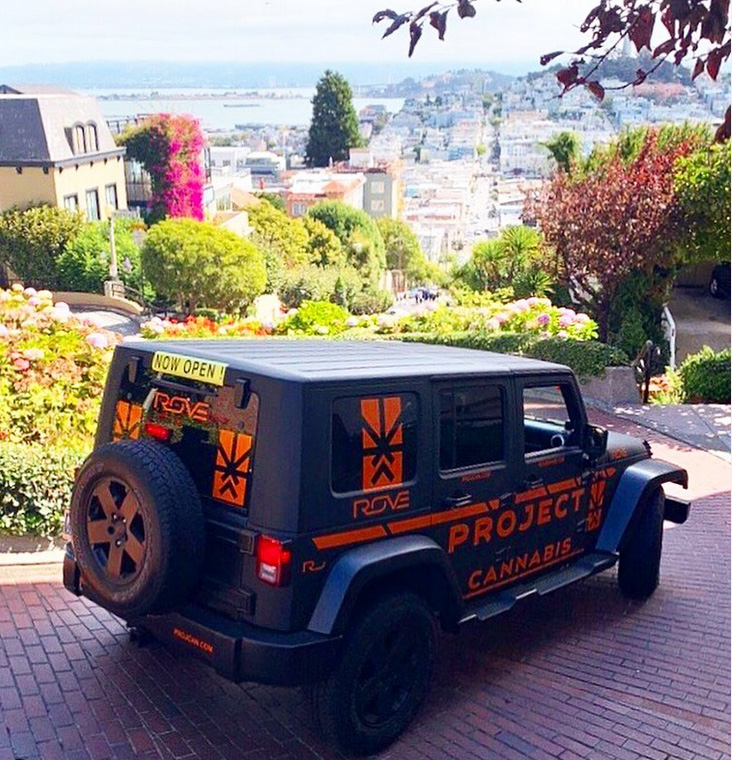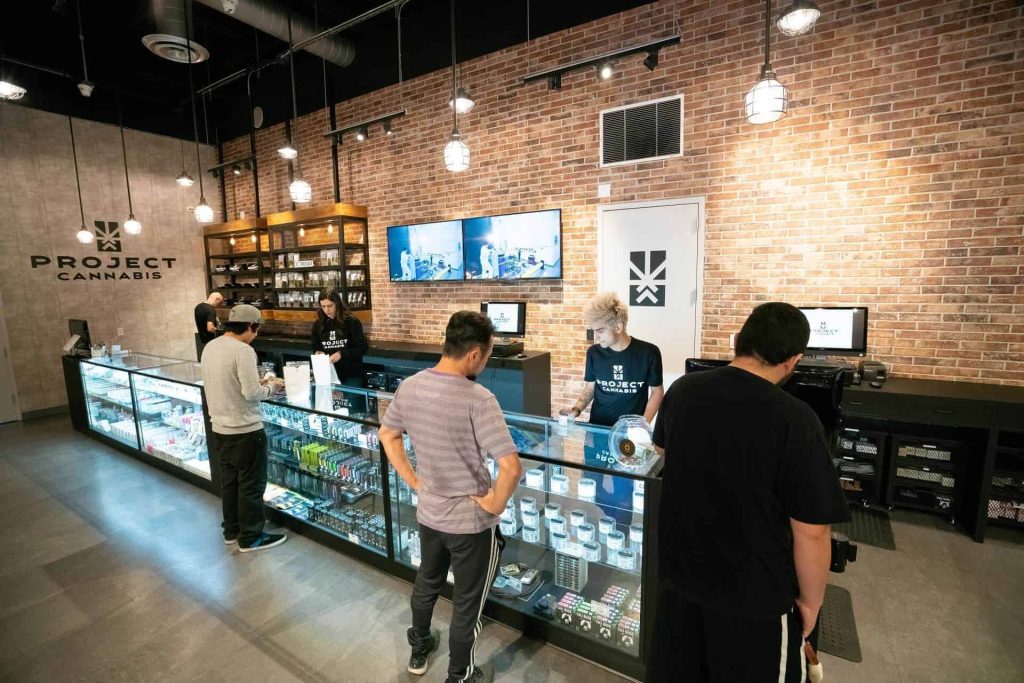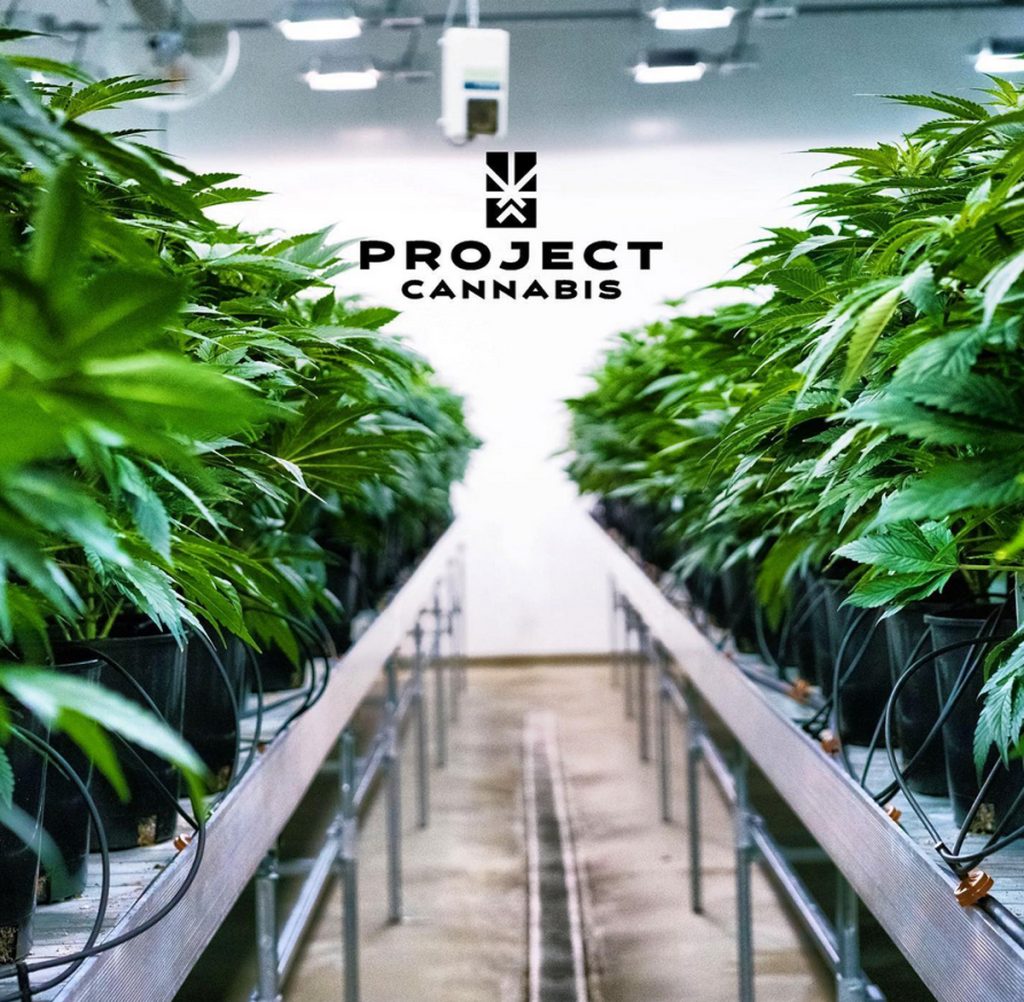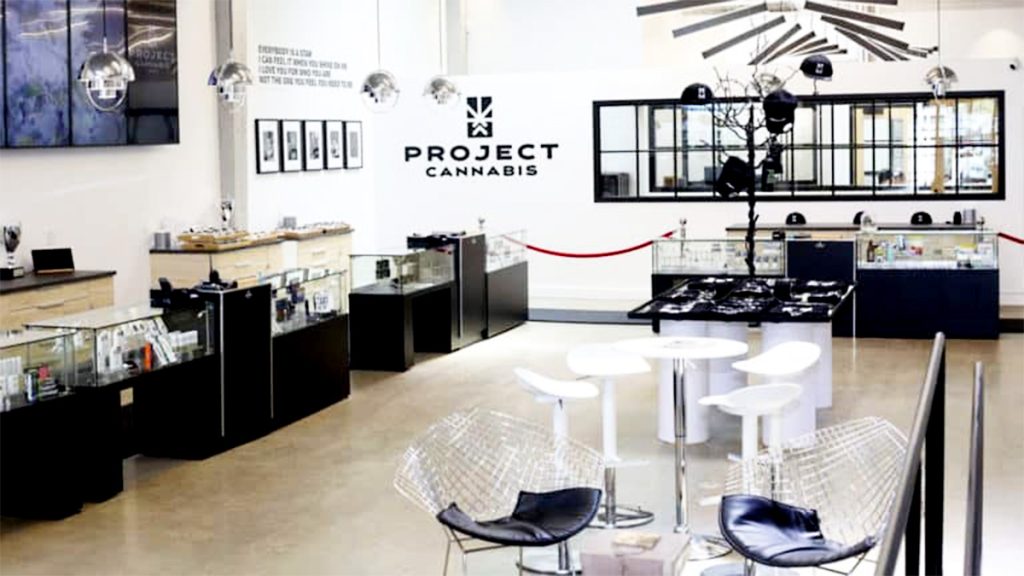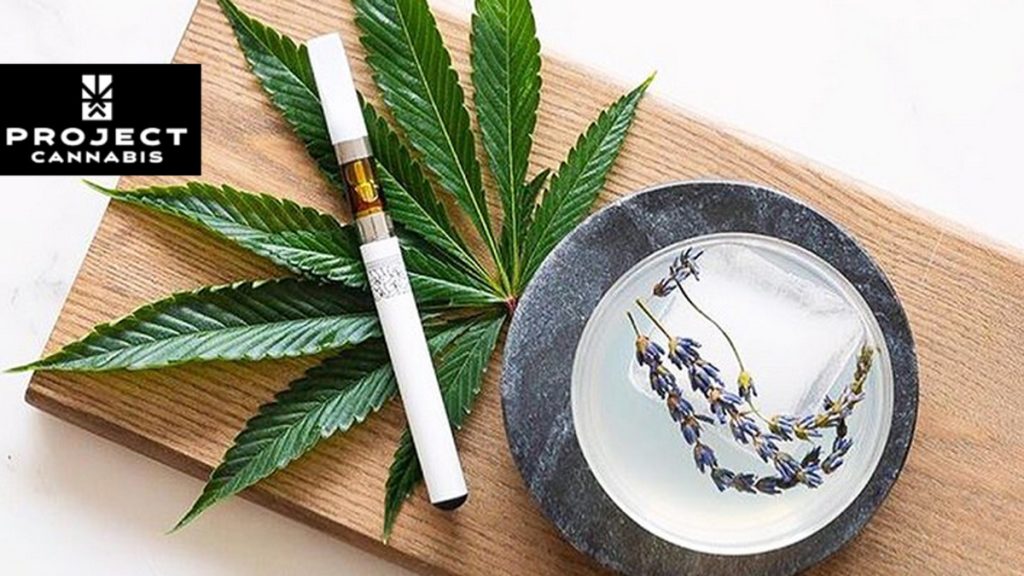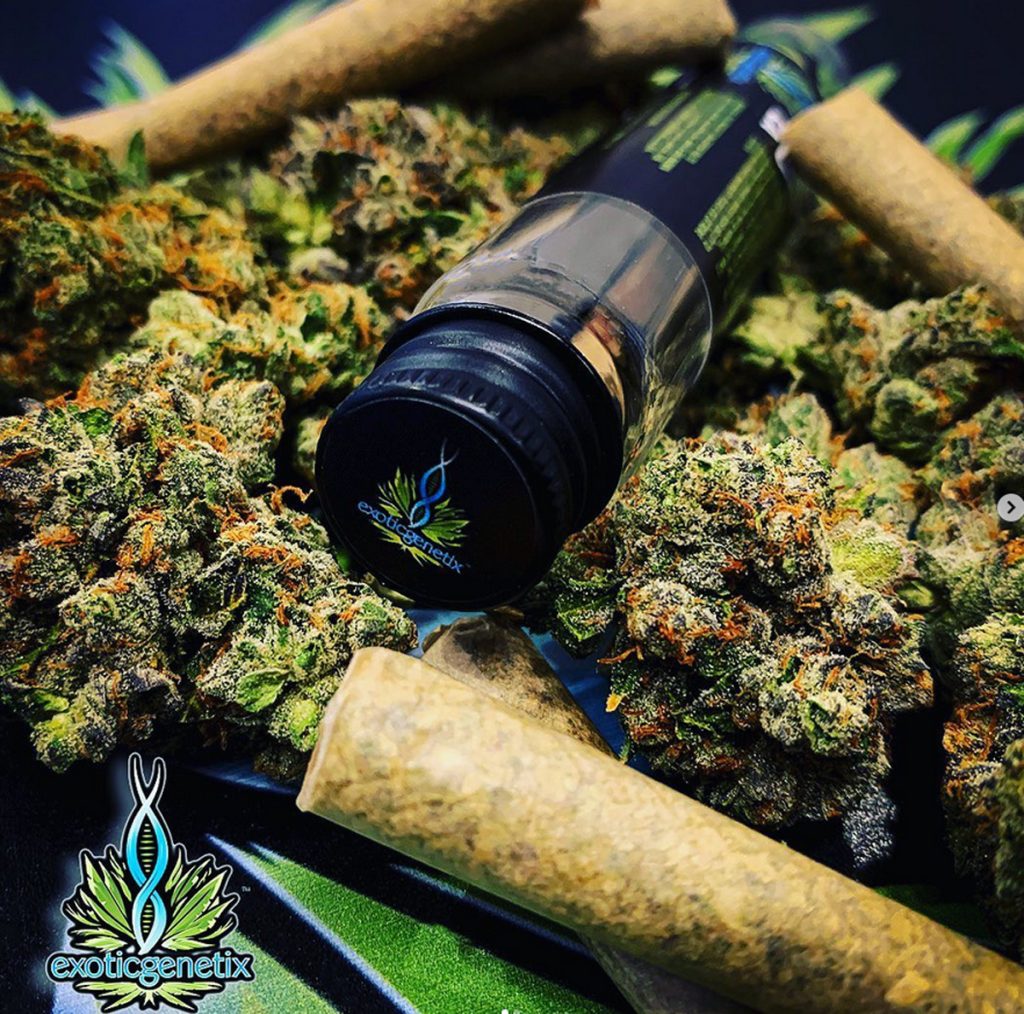Does Weed Help With Depression? Relief & Benefits

This post is part of our Best Dispensaries Around the Bay Area series, sponsored by Project Cannabis.
Disclaimer: This article is intended for informational purposes only and should not be considered as medical advice, diagnosis, or treatment. If you or someone you know is struggling with depression, it is crucial to consult with qualified healthcare professionals for an accurate diagnosis and appropriate treatment options. The information presented in this article should not replace professional medical guidance.

Depression can be an all-consuming mental disorder that is physically, emotionally, and mentally taxing. With over 5% of adults suffering from depression, it is not all that unusual to be diagnosed with depression at any stage of life.
Depression can look like anger, guilt, hopelessness, lack of pleasure, social withdrawal, persistent lethargy, pessimism or indifference to anything and everything, crying spells, inability to stay focused, and even thoughts of death or suicide. Depression wears many camouflages that can infiltrate at any given time, making it hard to experience life to its fullest or enjoy much of anything.
There is no cure, though there are treatments and other ways to combat manifestations of depression. Whether you are feeling down and out, or have had a rollercoaster of emotions and feelings of sadness, it’s essential to seek professional help to get to the bottom of what you are feeling. Taking necessary precautions to ensure that the mood can maintain a stabilized state, and that interest in daily life and activities remains prominent may even look like exploring alternatives to antidepressants such as cannabis or natural supplements.
Wait wait wait, does weed help with depression?
Table of Contents
- Benefits of Using Marijuana for Depression
- Is Weed a Safer Alternative to Traditional Antidepressant Medications?
- Can Weed Cause Depression?
- What Compounds In Weed Might Impact Depression?
- Is It Safe To Combine Prescribed Antidepressants With Weed?
- How To Purchase Marijuana
- Key Takeaways On Weed And Depression
- Conclusion
Benefits of Using Marijuana for Depression
How does weed help with depression, you may ask? Cannabis has pharmacological similarities to natural substances known as endo-cannabinoids, which are released when one experiences a high stress situation. Studies demonstrate that those who use medicinal cannabis to treat symptoms of stress, anxiety, and depression saw improvements in these symptoms, in addition to better quality of life and ability to sleep, compared to folks who did not use medicinal marijuana to treat depression and anxiety.
There is evidence that medicinal cannabis products–particularly those high in CBD–can help diminish these symptoms, though there is more study required to determine its true, long-term effects. Randomized, placebo-controlled studies on antidepressants and the analgesic properties of medicinal cannabis still remain low.
Neurotransmitters such as dopamine and serotonin, when low, can cause certain symptoms of depression. Thankfully, certain chemicals within cannabis–such as CBD—can block the absorption of said neuromodulators, which means your body can use those chemicals for longer periods of time. Why is this important? Access to higher levels of dopamine and serotonin can decrease feelings of worthlessness, indecisiveness, and indifference, and increase feelings of joy, purpose, confidence. These bursts of serotonin and dopamine could also create a heightened desire to socialize.
Additionally, the benefits of using marijuana to treat depression include restoration of normal levels of cortisol–the stress hormone–which, when imbalanced, can trigger a whole array of undesirable side effects. Specific strains can promote relaxation and restore internal peace, helping cannabis users who suffer from depression reach a state of calm and happiness. Self-reported studies also reveal that cannabis helped with post-partum depression.
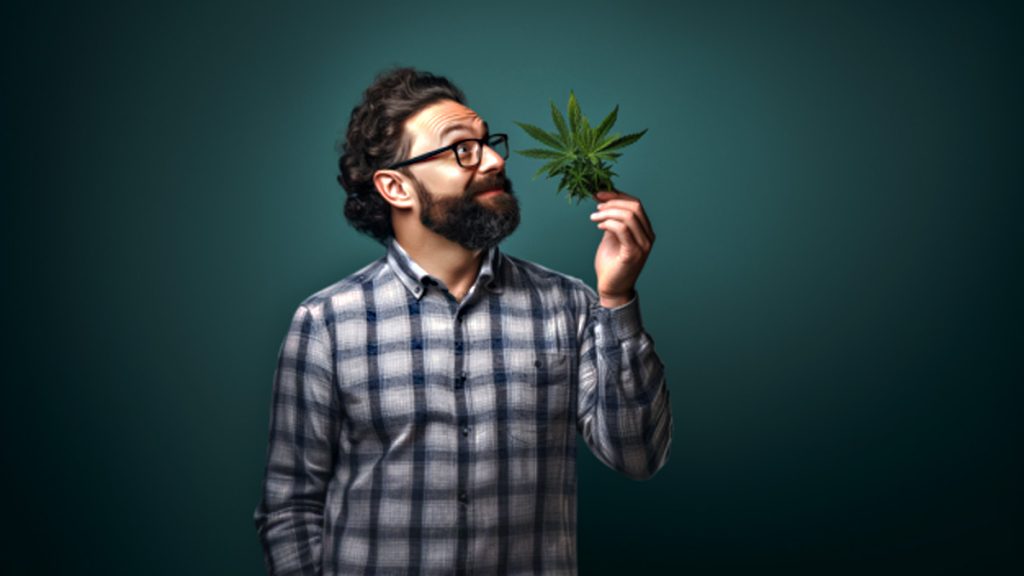
Is Weed a Safer Alternative to Traditional Antidepressant Medications?
Many who experience symptoms of depression, anxiety, and stress, opt to self-medicate with weed. Evidence continues to emerge about the correlation between weed and depression and the similarities weed has to antidepressants, however weed’s federal classification as a schedule 1 drug makes clinical research and scientific evidence limited.
Several participants of studies indicate that marijuana use can alleviate negative side effects experienced with other prescriptions such as antidepressants, ADHD medications, and painkillers. Cannabis can boost appetite, supporting those who experience appetite loss as a side effect of depression or antidepressants. Additionally, gastrointestinal problems generated by antidepressants can be eased with the use of marijuana.
While weed can serve as a substitute for prescription drugs, it may also not be a wise choice for some, depending on your family’s medical history and current medical conditions. Studies have shown that THC and CBD may have antidepressant-like effects, yet research has also indicated that cannabis has the potential to intensify specific mental disorders when strains contain a high percentage of THC. In some people who are predisposed to other mental illnesses like schizophrenia and bipolar disorder, cannabis could be a trigger for the disease. Cannabis-induced psychosis is very real, sometimes irreversible, so proceed with caution and always discuss with a doctor if you are predisposed to psychiatric disorders and consider cannabis as a treatment.
Is smoking weed better than antidepressants? Probably not. Marijuana consumption for the purpose of helping depression is only a temporary fix, not a permanent solution. Frequent use would be required to keep symptoms of depression at ease, which could eventually lead to dependency on marijuana.
That being said, weed is a safer alternative to traditional antidepressant medications, in some instances. Conventional medicine for depression can cause all sorts of mishaps, such as blurred vision, drowsiness, weight gain, headaches, nausea, diabetes, hormone imbalances, gastrointestinal bleeding, decreased alertness, lack of creativity and sex drive, and even tooth decay.
Of course, there will be studies that show marijuana works better than medications for the right individual, however, weaning off prescription pharmaceuticals is not to be taken lightly–it is crucial to consult with your doctor before considering ceasing taking medication like antidepressants.
Can Weed Cause Depression?
So now we’ve dialed in on the question “does weed help with depression?” It’s important to address another serious question…can weed CAUSE depression?
The short answer is yes and no. Studies demonstrate that marijuana can increase your risk of depression for some. Because cannabis is a depressant, so if you are already experiencing lethargy and fatigue, cannabis consumption might only further feelings of tiredness. Certain strains might decrease motivation, leaving you in couch potato mode for what feels like eternity. Studies have also linked marijuana use to a higher risk of suicidal thoughts in recreational users who have depression.
We repeat, cannabis use to treat depression is not for everyone, so if you are curious to try medicinal marijuana to ease symptoms of depression, seeking help from a medical professional is an absolute must.
What Compounds In Weed Might Impact Depression?
Cannabis contains over 100 cannabinoid chemicals, including THC and CBD. THC is one of the compounds in marijuana that could impact depression, due to its ability to alter brain chemistry and affect mood. This modified brain chemistry can go both ways–on the one hand, it could potentially increase the probability of leading to symptoms of depression, and on the other, it could lead to reduced symptoms of depression, because it can boost mood and strengthen contentment.
CBD and depression, on the other hand, might be a match made in heaven. CBD offers anxiolytic effects that ease anxiety in anxious patients.
Is It Safe To Combine Prescribed Antidepressants With Weed?
Is it safe to combine the two? Truth be told, the combination of prescribed antidepressants and weed may support those who are depressed, but it also has the potential to make symptoms worse–it all boils down to body chemistry, strain, dosage, and intended use. Well, we will let you consult with your doctor to figure out if cannabis is right for you to help treat depression.
How To Purchase Marijuana
If you’re looking to explore alternative options or supplemental treatments for antidepressants, it doesn’t hurt to do a little shopping at the weed store. Our favorite San Francisco Cannabis Dispensary–Project Cannabis–has a delightful supply of marijuana products that are fit for all types of ailments. To receive the most targeted guidance on which products to purchase to boost your mood, decrease anxiety, and dissolve feelings of sadness, emptiness, anger, and hopelessness, consult with a budtender at the dispensary who can hook you up with the best options suited for your particular needs.

Key Takeaways On Weed And Depression
So does weed help with depression? It can help relieve some symptoms of depression as well as negative side effects from antidepressant medications, though it is always recommended to consult with your doctor before switching medications to treat a serious condition like depression.
How about we go over what we determined about weed and depression?
- Weed can be used in conjunction with antidepressants to treat depression
- Both THC and CBD have antidepressant-like effects that can combat symptoms of depression such as irritability, mood swings, sadness, and appetite loss
- CBD has anxiolytic effects that can reduce anxiety, a symptom of depression
- Some evidence purports that reducing marijuana intake by those with depression may actually reduce depressive symptoms
- Marijuana can lower motivation in some users, and worsen symptoms of depression.
- Both marijuana and antidepressants can cause withdrawal symptoms and people can develop dependence
Conclusion
If you feel you are suffering from feelings of sadness, hopelessness, worthlessness or general irritability, it’s worth a visit to the doctor to get a proper diagnosis. Remember that there is light at the end of the tunnel, and you are valued and loved! There is treatment out there for everyone, and what that looks like for some patients might not look the same for you. It may take a little time to discover, test, and figure out what works best for your individual needs.
Hang in there, we are rooting for you!
Media credits: Images of weed use for depression in this article copyright LaJolla.com.




